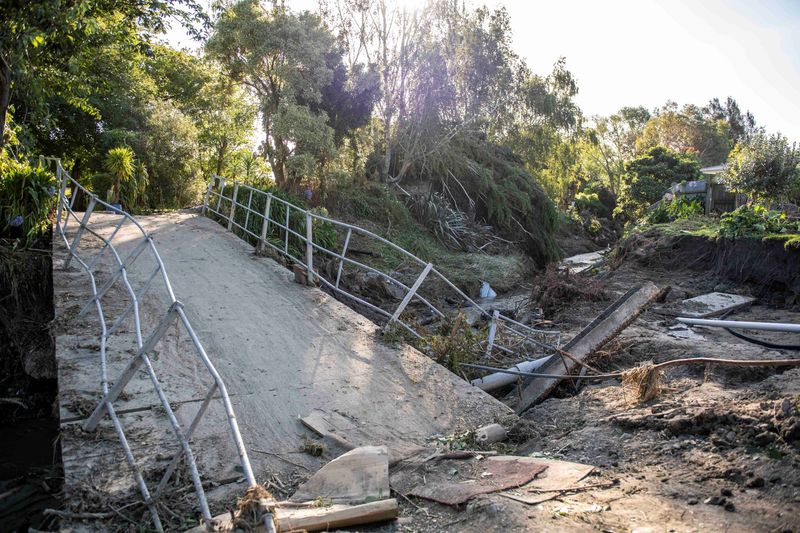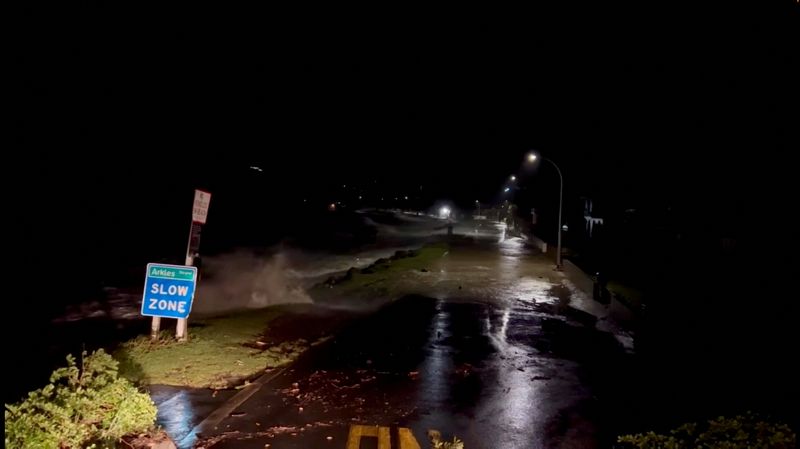SYDNEY (Reuters) - The death toll from Cyclone Gabrielle in New Zealand climbed to 11 on Sunday as thousands of people remained missing a week after the storm struck the country's North Island.
The cyclone hit the island's northernmost region on Feb. 12 and tracked down the east coast, inflicting widespread devastation. Prime Minister Chris Hipkins has called Gabrielle New Zealand's biggest natural disaster this century.
On Sunday, police said two more people had died in hard-hit Hawke's Bay in circumstances related to the cyclone.
More fatalities are possible, Hipkins told reporters, saying 3,216 people had been determined to be OK, while police were trying to ascertain the status of more than 3,000 others.
Lives had been "turned upside down" by the disaster and recovery was a "steep mountain ahead", he said, pointing to disrupted telecommunications, shortages of fresh water and damaged roads still restricting access to some areas.
Supply chains were disrupted causing problems moving goods, many crops had been destroyed, and 28,000 homes were still without power, he said.
"The true extent of the devastation and loss become clearer with every passing day," the prime minister said.
A team from Fiji would leave for New Zealand in coming days to assist with recovery, one of 12 offers of international aid received so far, Hipkins said. Twenty-seven emergency workers from Australia are assisting with the relief effort.
Recovery efforts continued on Sunday, with teams from Auckland Council carrying out rapid building assessments on damaged homes in the coastal areas of Muriwai and Piha, about 60 km (40 miles) west of the nation's largest city, Auckland.
Emergency authorities and the military have been dropping critical supplies via helicopter to communities stranded since the cyclone, which washed away farms, bridges and livestock and inundated homes.
Police have sent an extra 100 officers to Hawke's Bay and nearby Tairawhiti, including to isolated areas, amid reports of looting.

“The police are working to maintain law and order," Hipkins said.
(This story has been corrected to say that the police is seeking to ascertain the status of more than 3,000 people, not that 6,431 people remained missing, in paragraph 4)
